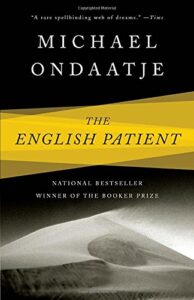
CONFESSIONS OF A CLOAK ARTIST received a 4+ star review, making it an IndieReader Approved title.
Following find an interview with author Jeff McGowan.
What is the name of the book and when was it published?
CONFESSIONS OF A CLOAK ARTIST. Published in March, 2018.
What’s the book’s first line?
We’re at a hostel on the Pest side of the Danube.
What’s the book about? Give us the “pitch”.
When a twice-divorced man loses his sense of purpose and meaning, he goes to Bali to rethink his core principles and to rewrite old stories about travels, love, and growing up in 1980’s Orange County.
What inspired you to write the book? A particular person? An event?
I love beautifully written and thoughtful books, pieces of art, but I also like books that are fun and full of history and knowledge. I set out to write a book that had all of this. No particular person or event inspired me; rather, it’s every author whose work embodies some or all of those things that was inspiration.
What’s the main reason someone should really read this book?
Because they’ll often lose themselves in the prose, because it’s fun and thoughtful and a celebration of travel, teachers, wonder, and learning, and because it’ll make them think about themselves, reality, and the world in different ways. They’ll get something from this book, and they’ll enjoy themselves along the way.
What’s the most distinctive thing about the main character? Who-real or fictional-would you say the character reminds you of?
The main character, Jim Murphy, is just insatiable in his quest for meaning, structure, and purpose. He’s determined to understand the world, the human experience at this place and time in history, and himself. CONFESSIONS is not a memoir, but Jim Murphy is me, this person called Jeff R. McGowan.
If they made your book into a movie, who would you like to see play the main character(s)?
Owen Wilson, because he’s great, he’s Lightning McQueen, and my son, Ross, loves him. Or Will Ferrell, because he’s awesome and we attended the same high school—University High—from 1984 to 1986.
When did you first decide to become an author?
Just after high school, when I was traveling and trying to figure out my purpose. I fell in love with literature and learning, and became determined to write a few quality books in my lifetime.
Is this the first book you’ve written?
It’s my third completed novel, but the first I’m putting out into the world. I also have an unpublished 380 pg. collection of quotes called My Spirit Books, and a book of World and U.S History fill-in lessons that I may publish someday as a home-schooling curriculum. I’m a little crazy.
What do you do for work when you’re not writing?
I teach high school Social Studies: World History; U.S. History; Government, and Economics.
How much time do you generally spend on your writing?
I generally carve out 30 minutes to an hour of prose/novel/creative writing in the morning, and another hour, two plus of writing for work etc.
What’s the best and the hardest part of being an indie?
The best part is the miracle of having a creative purpose, a creative context to learn, and now having the ability to publish, even though I didn’t earn it in the traditional way. The worst part is feeling utterly and completely alone in the process. I didn’t do the usual route, didn’t do an MFA, submit short stories to literary magazines, go to conferences etc. Instead, I just studied literature and the world, used my job as a context to learn and write, worked on the craft of writing, worked with writing groups, and looked big-picture, figured if I was diligent, I could write a few solid books in my lifetime. CONFESSIONS is the first one. But it can be alienating after working alone for so many years. You know you’re a writer, but without anything to show for it, others don’t, and that can be disorienting. Until you have something solid, you’re just another hack, and that’s the plight of the indie author: having to prove you’re not just another hack.
What’s a great piece of advice that you can share with fellow indie authors?
That, despite how you often feel, you’re not alone. That the process is indeed beautiful, and that your hard work and effort will eventually pay off. Also, don’t submit or publish until it’s truly ready, pay the professional editor, and edit, edit, edit. I know you’ve heard it a thousand times, but it can’t be said enough.
Would you go traditional if a publisher came calling? If so, why?
Yes. If I could share my work with more people, continue teaching, get paid handsomely, and connect with fellow craftsman in a way that benefits all, I’d go traditional. My end goal is to write a solid book. Traditional or indie won’t change that; it’ll just change how many people read it.
Is there something in particular that motivates you?
To write a beautiful book.
Which writer, living or dead, do you most admire?
This is a difficult question for me, for there are so many writers who are admirable. But in the name of admiring the combination of scientific fervor, a commitment to wonder and exploration, and to conveying all in beautiful words, I’d have to say Alexander von Humboldt.
Which book do you wish you could have written?
The English Patient, by Michael Ondaatje, a book of pure elegance…


